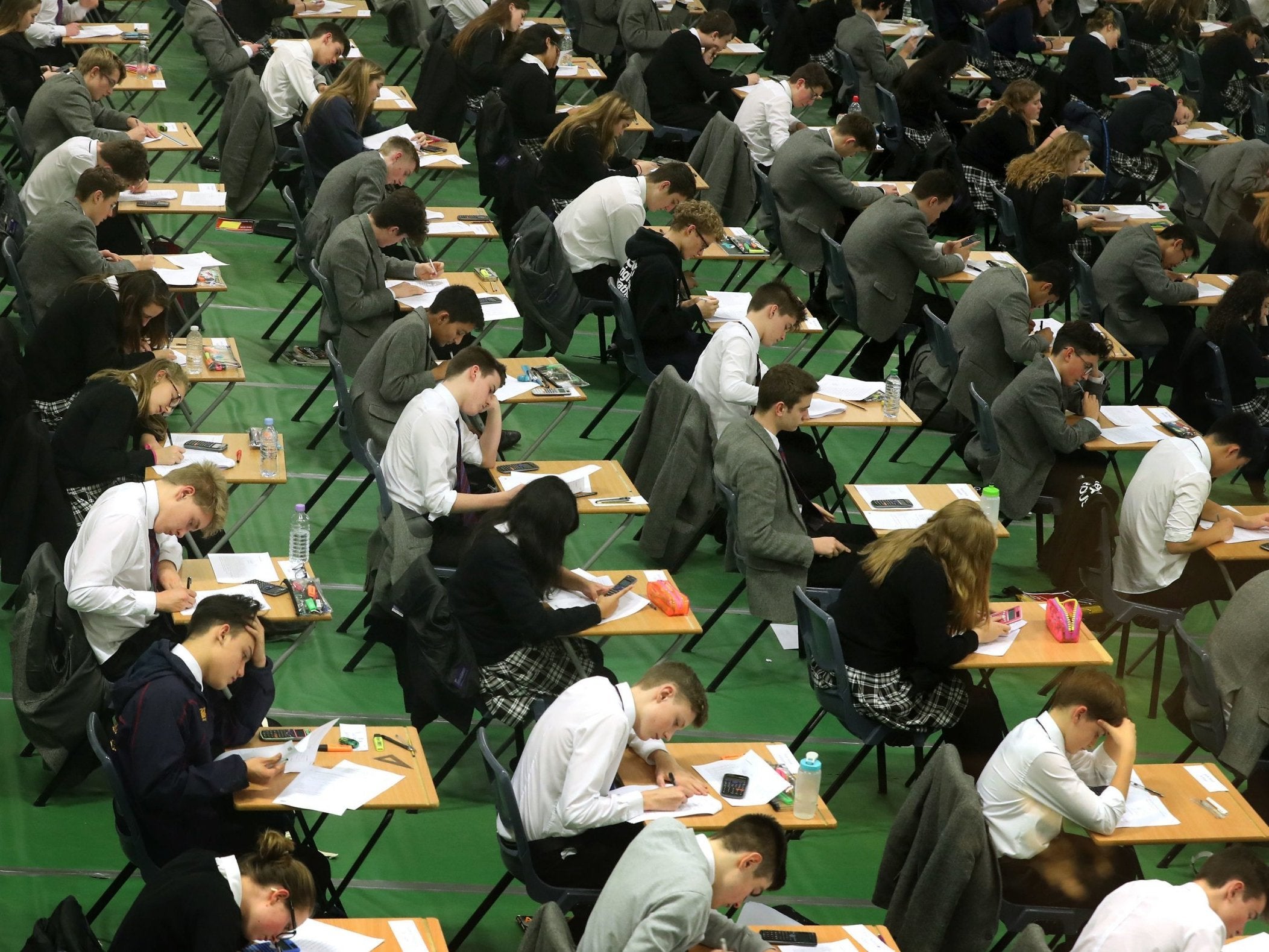Universities urged to stop using ‘unethical’ tactics to pressure students into accepting places
‘It is simply unacceptable for universities to adopt pressure-selling tactics’

Your support helps us to tell the story
From reproductive rights to climate change to Big Tech, The Independent is on the ground when the story is developing. Whether it's investigating the financials of Elon Musk's pro-Trump PAC or producing our latest documentary, 'The A Word', which shines a light on the American women fighting for reproductive rights, we know how important it is to parse out the facts from the messaging.
At such a critical moment in US history, we need reporters on the ground. Your donation allows us to keep sending journalists to speak to both sides of the story.
The Independent is trusted by Americans across the entire political spectrum. And unlike many other quality news outlets, we choose not to lock Americans out of our reporting and analysis with paywalls. We believe quality journalism should be available to everyone, paid for by those who can afford it.
Your support makes all the difference.The government has condemned universities for using “unethical” selling tactics to pressure tens of thousands of sixth-formers a year into accepting university places which may not be right for them.
Education secretary Damian Hinds is calling for a review of university admissions following a surge in the number of students being offered a place on a degree regardless of their exam grades.
The use of “conditional unconditional offers”, where a university tells students they are guaranteed a place but only if they make it their first choice, is harming students’ attainment, ministers warn.
Mr Hinds is writing to 23 of the worst-offending universities, including a Russell Group institution, urging them to stamp out “pressure-selling tactics” which back students into a corner.
Universities that make conditional unconditional offers could be fined or deregistered for the “unacceptable” practice, and the government has not ruled out banning these offers altogether.
The review will look at whether these offers could breach laws designed to protect consumers from entering into a transaction they otherwise would not have, the Department for Education has said.
It comes after a Ucas report revealed that universities made 66,315 of these offers to 18-year-olds from England, Northern Ireland and Wales last year. In 2013, there was no detection of these offers.
The University of Birmingham, a member of the prestigious Russell Group, is one of the institutions Mr Hinds is writing to after it made 4,750 conditional unconditional offers to 18-year-olds in 2018.
“It is simply unacceptable for universities to adopt pressure-selling tactics, which are harming students’ grades in order to fill places,” Mr Hinds has said. “It is not what I expect to see from our world-class higher education institutions.”
Already at least two universities that Mr Hinds is reaching out to – the University of Roehampton and Aston University – have announced that they will no longer be making these offers.
This follows the Ucas figures which revealed that nearly two-thirds of all offers made by Roehampton to 18-year-olds were conditional unconditional offers.
Now more than one in three sixth-formers receive at least one unconditional offer, compared to just 1.1 per cent in 2013.
Students who accept unconditional offers are proportionally 7 per cent more likely to miss their predicted A-levels by two grades than students with conditional offers.
Paul Cottrell, acting general secretary for the University College Union, said: “Unconditional offers put too much pressure on young people to make a snap decision about their future and are symptomatic of a broken admissions system.”
Meanwhile, Labour MP Gordon Marsden, shadow higher education minister, claimed the rise of unconditional offers was a direct result of a “marketised approach” to higher education, which he said has “piled pressure” on institutions to recruit students.
He warned the situation is worsening. “Future higher education income is threatened, and there is a feeding frenzy of competition for students now,” Mr Marsden added.
The Office for Students (OfS), the higher education regulator, is planning to bring together a range of parties to consult on the admissions system to ensure it works in all students’ interests.
Nicola Dandridge, chief executive of the OfS, said: “It is not in students’ interests to push them into decisions that may not be right for them, and admissions practices are clearly not working if they are having a negative impact on students’ choices or outcomes.”
A Universities UK spokesperson said: “As with all offers to study at university, universities must be able to explain why and how they award unconditional offers with conditions attached.
“We are already working together with Ucas, reviewing existing guidance and gaining a better understanding of how these offers are being used.”
“It is essential that admissions processes and policies are fair and transparent, underpinned by clear criteria and in the best interest of students,” they added.
Join our commenting forum
Join thought-provoking conversations, follow other Independent readers and see their replies
Comments